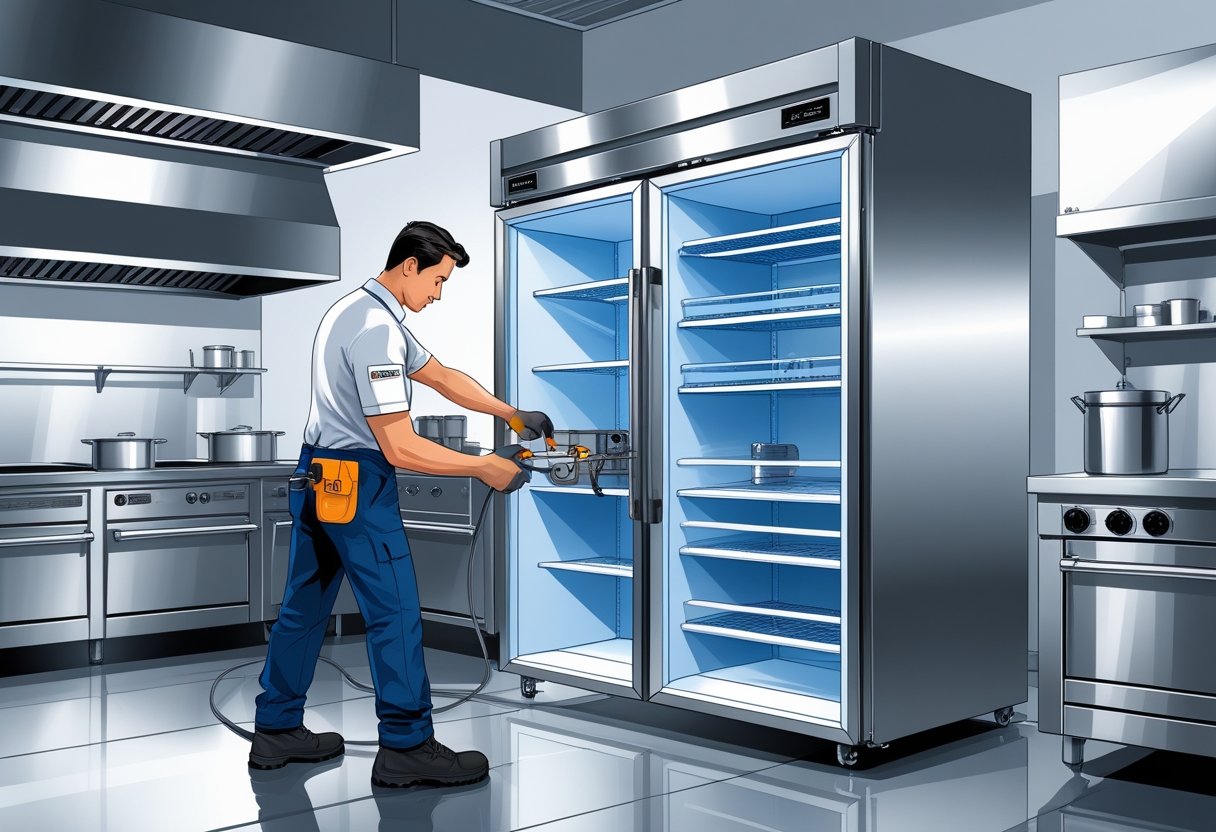proudly serving
the mid-south
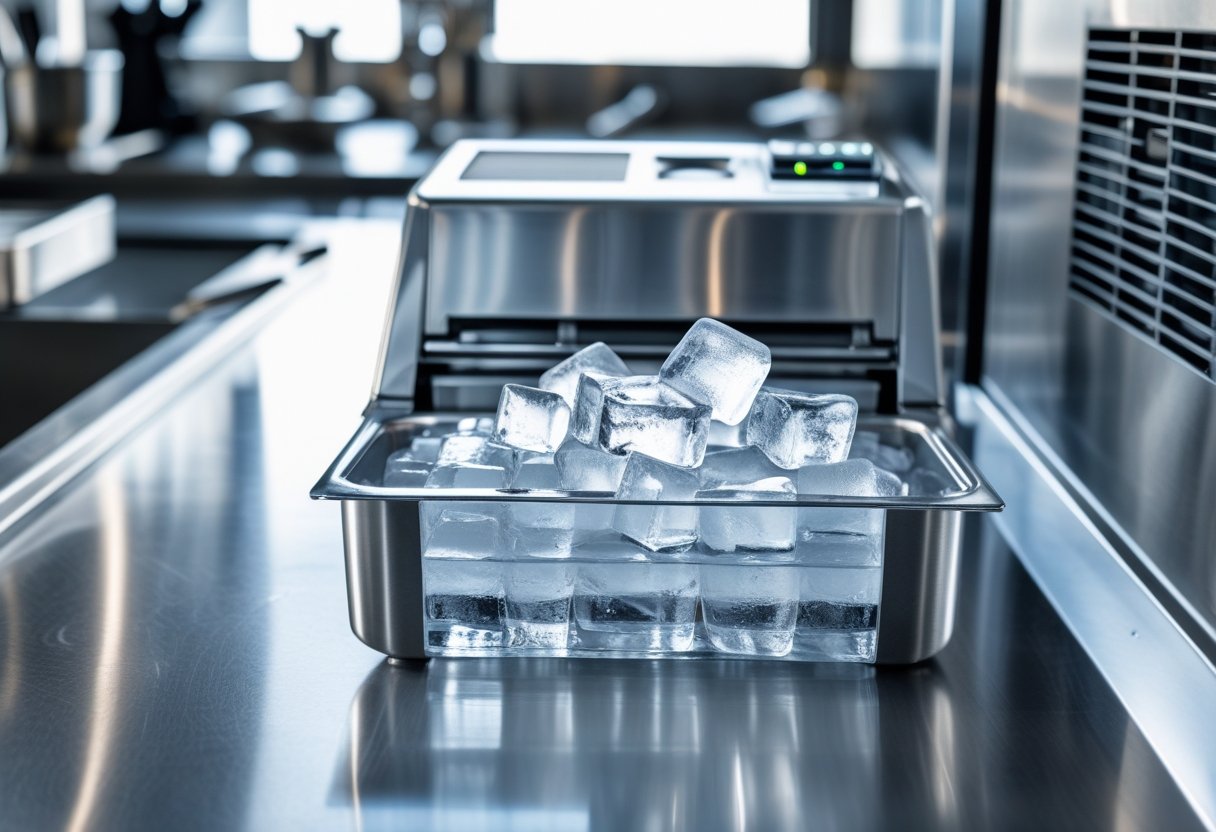
Best Ice Machine for Healthcare Facilities Efficient, Reliable, and Hygienic Solutions for Medical Environments
When choosing the best ice machine for healthcare facilities, reliability and hygiene are your top priorities. A commercial ice machine that produces clean, dense, and chewable ice with easy-to-maintain sanitation features ensures patient comfort and meets medical standards. This kind of machine supports a range of needs from post-operative care to medication preservation.
At Memphis Ice, we understand how critical ice availability is in medical settings. Your ice machine should be efficient, dependable, and tailored to handle the specific demands of healthcare environments without adding stress to your daily operations. From installation to ongoing maintenance, you want a partner who keeps your system running smoothly year-round.
Whether you need a high-capacity system for a large hospital or a compact model for a smaller clinic, making the right choice means considering ice type, production rates, and touch-free dispensing. Keeping these factors in balance will help you deliver quality care while avoiding downtime or costly repairs.
Why Ice Machines Are Essential for Healthcare Facilities
Reliable access to clean, properly sized ice is critical in healthcare settings. Ice machines must meet specific demands like pain relief, swelling reduction, and maintaining medication temperatures. The right equipment ensures consistent supply without interruptions, supporting both patient care and facility operations.
Medical Applications of Ice
In healthcare, ice is vital for managing inflammation and reducing swelling after surgery or injury. Hospital ice machines produce ice that fits applications—such as half-cube or regular-sized ice—ideal for cold packs or direct patient use.
Ice also helps in emergency trauma care by providing immediate cooling to control bleeding and pain. Maintaining consistent ice quality and availability supports efficient medical treatment, preventing delays in critical moments.
You need a medical ice machine that operates hygienically and reliably to meet these strict requirements every day.
Role in Patient Care and Comfort
Ice is more than a treatment tool; it supports hydration and patient comfort throughout their stay. Offering ice at regular intervals helps patients manage fever and oral care.
Hospital ice machines should be placed strategically where patients, visitors, and staff can access them easily, such as waiting rooms or cafeterias. This promotes hydration and comfort without adding strain to healthcare staff.
Selecting an ice machine that is easy to use and maintain helps keep the unit clean and operational, ensuring patients’ needs are consistently met.
Ice for Medication Storage
Certain medications require cold storage to maintain their efficacy. Ice from dedicated hospital ice machines can be used in portable coolers or storage units to keep these medicines within safe temperature ranges.
You must rely on an ice machine that produces clean, contaminant-free ice to avoid compromising sensitive drugs. This is especially important in facilities that lack advanced refrigeration infrastructure for every medication storage need.
High-quality ice machines, like those offered by Memphis Ice, deliver dependable ice production to support proper medication handling and storage protocols. This reduces the risk of medication spoilage and helps maintain patient safety.
Types of Ice Machines Suited for Healthcare Settings
Choosing the right ice machine involves balancing capacity, hygiene, ease of use, and space. Healthcare facilities often require machines that produce clean, chewable ice quickly and reliably while maintaining strict sanitary standards.
Modular Ice Machines
Modular ice machines are ideal when you need a high output of ice but limited space for storage. These units produce ice separately from the storage bin, allowing for flexible installation. You can pair a modular machine with a variety of storage capacities, tailoring the system to your hospital’s daily ice demand.
This setup handles large volumes efficiently, making it perfect for busy hospitals and clinics. The modular design also helps simplify maintenance, as damaged components can be serviced individually without shutting down the entire system.
Countertop and Undercounter Options
For smaller healthcare settings or nursing stations, countertop and undercounter ice makers provide compact solutions without sacrificing quality. These units fit conveniently under sinks or on counters, conserving space.
They produce a sufficient amount of cube or nugget ice for patient hydration or therapeutic needs. Many models feature easy-to-clean surfaces and simple controls, which support infection control protocols. Their lower production capacity suits offices or wards with limited ice demand but still ensures accessibility.
Ice Dispensers and Touch-Free Systems
Touch-free ice dispensers are becoming standard in healthcare due to hygiene concerns. These systems minimize contact, reducing the risk of cross-contamination among patients and staff.
They often combine an ice maker with an automated dispenser that delivers measured amounts of ice or water with a motion sensor or foot pedal. This ensures efficient usage while maintaining sanitary conditions. Some dispensers also produce dense, chewable ice preferred for patient comfort and medical requirements.
Commercial Ice Makers vs. Residential Units
Commercial ice makers differ from residential machines in durability, capacity, and compliance. A commercial ice machine can run continuously, producing hundreds of pounds of ice daily, essential for hospital use.
Residential units are not designed for heavy, regulated environments like healthcare facilities. They lack the sanitary features and reliability commercial units offer. When you invest in a commercial ice machine, you ensure consistent ice supply, energy efficiency, and adherence to health standards essential in medical settings.
For trusted advice and solutions tailored to your facility’s needs, Memphis Ice offers comprehensive support and service to keep your ice machines running smoothly. Visit their experts to explore your options and find the best fit for your hospital or clinic.
Learn more about the right choices for healthcare ice machines at Ice Makers For Hospitals.
Best Types of Ice for Healthcare Facility Needs
Choosing the right type of ice directly affects patient comfort, treatment effectiveness, and operational efficiency. Different ice forms serve specific medical purposes, from cooling injuries to hydration. Understanding the characteristics of nugget, flake, and cube ice helps you select solutions that align with your facility’s needs.
Nugget Ice and Its Benefits
Nugget ice is soft, chewable, and shaped in small, porous pieces. This makes it ideal for patients who need ice therapy but may have sensitive teeth, such as the elderly or children. Its texture also allows it to conform to body contours, providing localized cooling for swelling and inflammation.
Nugget ice melts slowly, extending its cooling effect during treatments. It’s commonly used for oral hydration and post-operative care. Your healthcare facility will benefit from machines that produce nugget ice reliably in large quantities, ensuring availability when demand spikes. Memphis Ice can help you find the right commercial ice machine capable of producing consistent nugget ice.
Flake Ice in Clinical Applications
Flake ice is thin and malleable, perfect for wrapping around wounds or filling ice packs. Its small, flat pieces distribute evenly over surfaces, offering gentle and consistent cooling. This makes it a staple in physical therapy, trauma care, and dietary needs within hospitals.
One key advantage is that flake ice maintains excellent contact with skin without causing frostbite. It’s also easily packed into coolers or portable containers for transport. Because of its fast freezing and easy handling characteristics, flake ice machines are practical for both small clinics and large-scale hospital environments.
Cube Ice and Cubelets
Cube ice comes in several standard shapes: regular cubes, half-cubes, and cubelets. They are hard, dense, and slow to melt, making them suitable for hydration purposes and beverage service within healthcare settings.
The regular cube and cubelet ice provide clear cooling efficiency but are less suited for direct therapeutic use where softness or flexibility is needed. Many facilities use cube ice for patient hydration, food storage, and medication cooling. Depending on the machine, you can select the cube size to best fit your clinical requirements.
Types of Hospital Ice
Hospitals demand a variety of ice types to meet diverse care needs. Nugget and flake ice often cover therapy and treatment, while cube ice addresses hydration and beverage service. Some advanced ice machines offer customizable settings to switch between types, ensuring versatility.
When selecting an ice machine, consider factors such as volume capacity, sanitation features, and ease of maintenance to align with your hospital’s protocols. Working with a trusted partner like Memphis Ice ensures you get equipment tailored to those demands, backed by reliable service and support throughout the Mid-South region.
Explore the full range of ice options to optimize patient care and operational flow at your facility. For more on commercial ice machines suited for healthcare, check out this guide to hospital ice makers.
Key Factors for Choosing the Best Ice Machine
Selecting the right ice machine for healthcare means focusing on specific needs like production capacity, energy use, and the physical space available. Each of these elements impacts daily operations, maintenance, and overall costs.
Capacity and Output Requirements
Your ice machine must meet the volume demands of a healthcare facility, which often require a steady, reliable supply.
Calculate ice needs based on patient load, kitchen service, and cooling applications. Machines list production usually in pounds per day. Choose one that covers peak demand without excessive overcapacity.
For continuous operation, look for machines offering consistent output with fast recovery time. This reduces shortages during busy periods.
Keep in mind, oversizing your machine increases upfront costs and energy use. Undersizing leads to supply gaps, affecting patient care and food safety.
Memphis Ice can help you find the right capacity to match your facility’s daily output without overspending on hospital ice machine cost.
Energy Efficiency and Sustainability
Energy efficiency directly affects operating expenses, especially with commercial ice machines running around the clock.
Look for models with ENERGY STAR ratings or advanced features like programmable settings and intelligent diagnostics. These help reduce power consumption and water waste.
Sustainable operation also means choosing machines that minimize maintenance. Well-built units with reliable parts lower downtime and repair costs.
Consider the long-term benefits: lower utility bills and reduced environmental impact save money and align with healthcare sustainability goals.
Being mindful of energy use is not just smart budgeting; it’s part of responsible facility management.
Size and Space Considerations
Space constraints are common in healthcare settings, where each square foot matters.
Measure the installation area carefully, including clearance for ventilation and maintenance access.
Compact machines can be ideal but make sure they don’t sacrifice output or efficiency.
Consider the ice storage bin size, too. A larger bin reduces the frequency of refills but requires more room.
Memphis Ice offers options tailored to fit tight spaces without compromising performance, ensuring your ice supply stays steady without crowding valuable space.
Ice Machine Maintenance and Hygiene Standards
Keeping your ice machine clean and well-maintained is critical for safe operation and long-term reliability. Regular sanitation, modern features, and proper upkeep all contribute to preventing contamination and costly downtime in healthcare settings.
Importance of Regular Cleaning
You need to clean both the interior and exterior of your ice machine on a strict schedule to control bacteria and other pathogens. Weekly exterior wipes remove dust and residue, while monthly interior cleaning tackles hidden buildup in ice bins and water lines. Quarterly maintenance, including parts inspection and deep cleaning, ensures any contaminants like Legionella don’t proliferate.
Ice machines in healthcare are especially vulnerable to waterborne pathogens that can cause infections. Following manufacturer guidelines for cleaning frequency and methods reduces these risks significantly. Regular maintenance checks also catch issues early, preventing costly repairs and machine failures. Memphis Ice recommends scheduling professional service to uphold these hygiene standards reliably.
Advanced Sanitation Features
Modern healthcare ice machines come equipped with features designed to improve sanitation and reduce manual cleaning efforts. Automatic self-flushing cycles clear water lines frequently, minimizing stagnation where bacteria grow. Some models include antimicrobial surface coatings that inhibit microbial growth on ice-contact areas.
Fast and efficient sanitizing systems integrate with facility maintenance routines to encourage compliance. When selecting a machine, look for technologies that ease consistent cleaning without sacrificing performance. This helps your team stay inspection-ready and reduces the workload on busy staff, maintaining both safety and convenience.
Longevity and Reliability
Proper ice machine maintenance extends equipment lifespan and ensures operational reliability in critical healthcare environments. Routine servicing prevents mineral deposits, biofilm buildup, and mechanical wear that can cause malfunctions.
Keeping components clean and promptly replacing worn parts avoids unexpected breakdowns. Memphis Ice knows maintaining a dependable ice supply is essential to patient care and facility operations. Investing in a maintenance program balances upfront costs with reduced downtime, fewer repairs, and better ice quality over time.
Top Brands and Models for Healthcare Facility Ice Machines
Choosing the right ice machine involves balancing capacity, reliability, and specific ice types suitable for healthcare settings. Each leading brand offers distinct advantages in durability, sanitation, and ice output, all key to maintaining patient care standards.
Hoshizaki
Hoshizaki is known for consistent, energy-efficient ice machines that produce clear, hard cubes ideal for medical use. Their models often include antimicrobial night covers and easy-to-clean components, which are crucial in healthcare to reduce contamination risks.
You’ll find both undercounter and modular machines, allowing flexibility based on your facility size. The KM series is popular for producing crescent-shaped cubes that cool quickly yet melt slower, ideal for therapy and patient hydration. Hoshizaki units integrate well into busy hospital environments with robust build quality and user-friendly controls.
Scotsman
Scotsman ice machines focus on high production rates and dependable operation, critical for larger healthcare facilities. Their ProOx Systems offer advanced sanitation with oxygen-based cleaning technology, lowering maintenance time and ensuring ice safety.
Scotsman’s nugget ice models are favored for patient comfort, as nugget ice is soft and easy to chew, easing swallowing for some patients. Compact undercounter designs fit smaller clinical areas while larger modular systems meet heavy daily demand without compromising performance.
Manitowoc
Manitowoc machines strike a balance between versatility and reliability, with a strong presence in hospitals requiring consistent ice output. Their Ice Bank technology stores excess ice, allowing for quick access during peak usage.
Models like the UDF series produce cube ice favored for general healthcare uses, while the company’s advanced self-cleaning features help reduce labor. Manitowoc’s reputation for durability means less downtime, an important factor when ice is needed for post-operative recovery or inflammation treatment.
If you need tailored support, Memphis Ice has been serving the Mid-South since 1977 and can assist you in selecting and maintaining any of these models to fit your facility’s needs.
Frequently Asked Questions
Choosing the right ice machine for healthcare settings involves weighing factors like capacity, ice type, and compliance with regulations. You also need to consider how ice quality and maintenance impact patient care and operational efficiency.
What are the critical factors to consider when selecting an ice machine for a healthcare facility?
Capacity should match the daily ice demand to avoid shortages. Look for machines that are easy to clean and maintain, ensuring hygienic ice production.
Energy efficiency, reliability, and noise level matter as well. Compliance with healthcare standards is essential to meet safety requirements.
How does flake ice benefit patients in healthcare settings compared to other ice types?
Flake ice adapts well to injury treatment by molding around wounds and surgical sites. Its smaller size and softer texture provide comfort and faster cooling.
This type also melts slower than regular cube ice, making it ideal for extended therapy applications.
What are the advantages of ADA-compliant ice makers in hospitals and healthcare facilities?
ADA-compliant machines ensure accessibility for patients and staff with disabilities. They are designed for ease of use and meet federal guidelines for height, reach, and operability.
Incorporating these machines supports inclusivity and legal compliance while improving overall facility usability.
Which brands offer the highest-quality ice machines suitable for use in healthcare facilities?
Memphis Ice offers dependable commercial ice machines with a strong reputation for quality and service in the Mid-South. Their machines meet industry standards and are suited to healthcare demands.
When selecting a supplier, prioritize those with proven healthcare experience and local service support.
How do hospitals manage their ice supply, and is it preferable to produce ice on-site?
Hospitals often produce ice on-site to maintain control over hygiene and availability. This reduces dependency on external ice deliveries and ensures freshness.
On-site production also allows quick access for therapy and patient needs, reducing delays and contamination risks.
What type of maintenance is required for ice machines used in healthcare facilities to ensure sanitary ice production?
Regular cleaning and sanitizing of water reservoirs, ice bins, and dispensing areas are crucial. Scheduled maintenance should include filter replacements and microbial testing.
Partnering with a service provider like Memphis Ice ensures your equipment stays reliable and compliant year-round.
Recent News
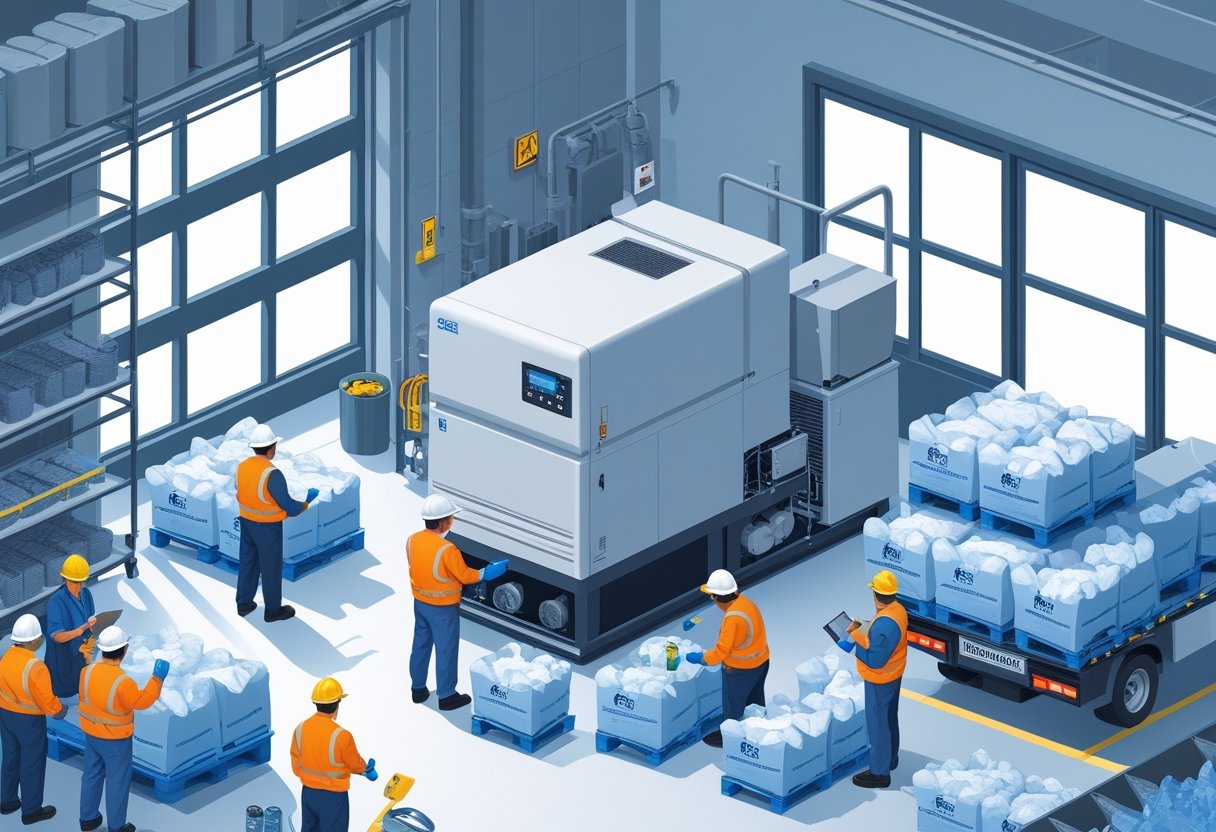
Industrial Ice Machine Rental Programs for Efficient Business Operations
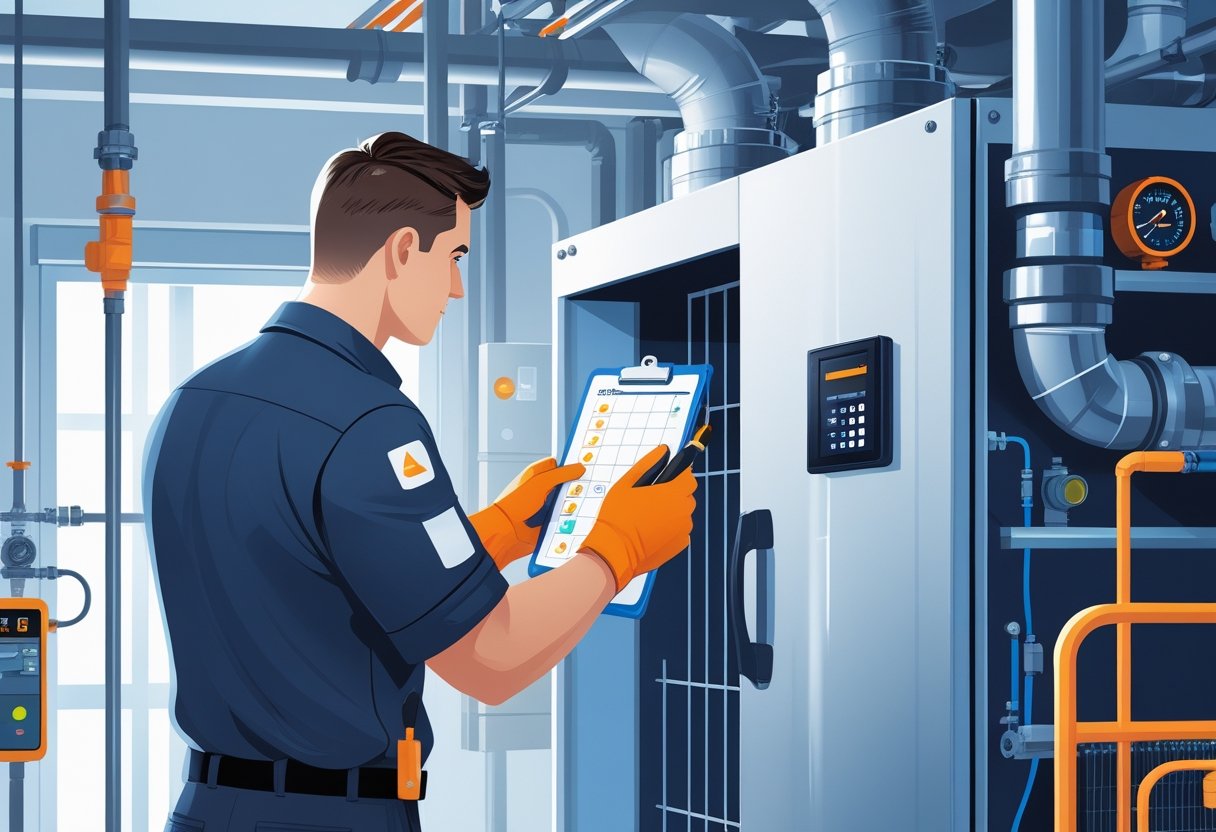
Scheduled Refrigeration Service Contracts for Reliable and Cost-Effective Maintenance
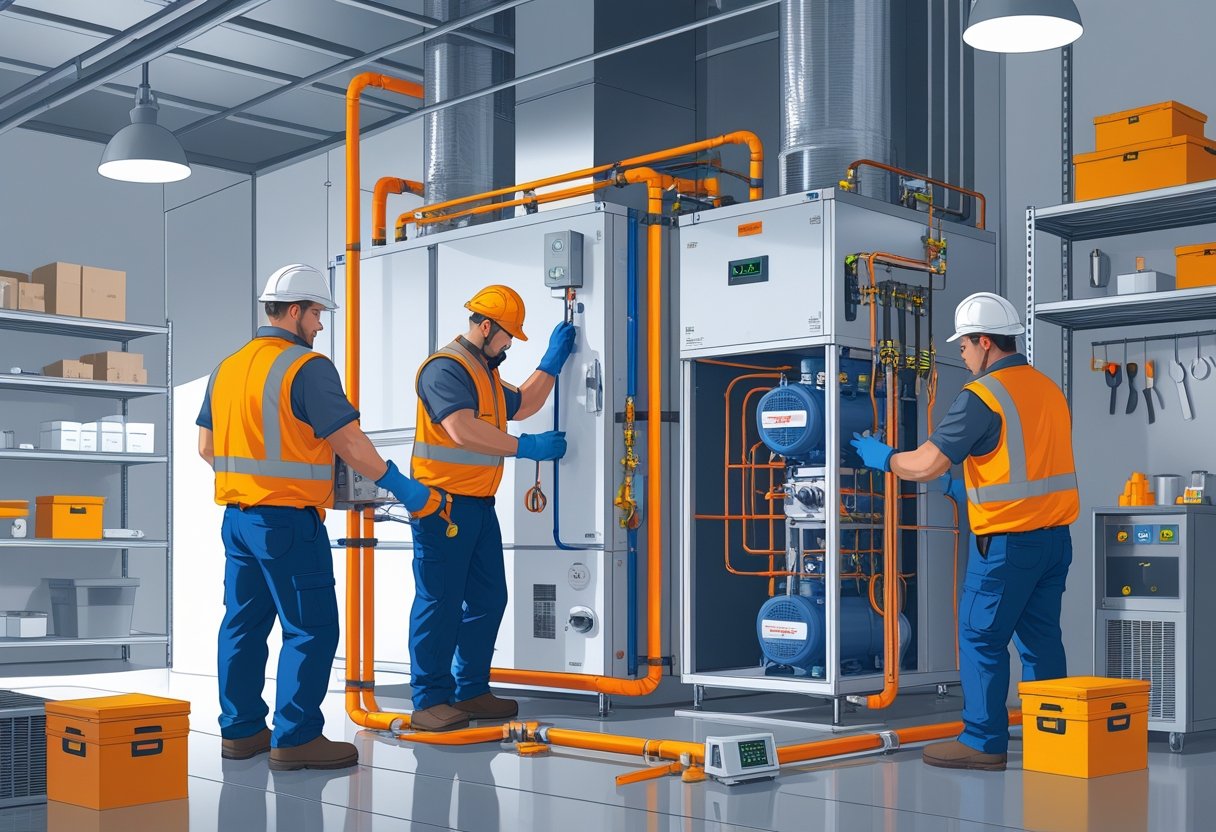
Commercial Refrigeration System Installation Best Practices for Efficiency and Reliability

Cold Storage Installation for Healthcare Facilities: Ensuring Safe and Reliable Medical Storage Solutions

Restaurant Prep Table Service and Repairs for Optimal Kitchen Efficiency
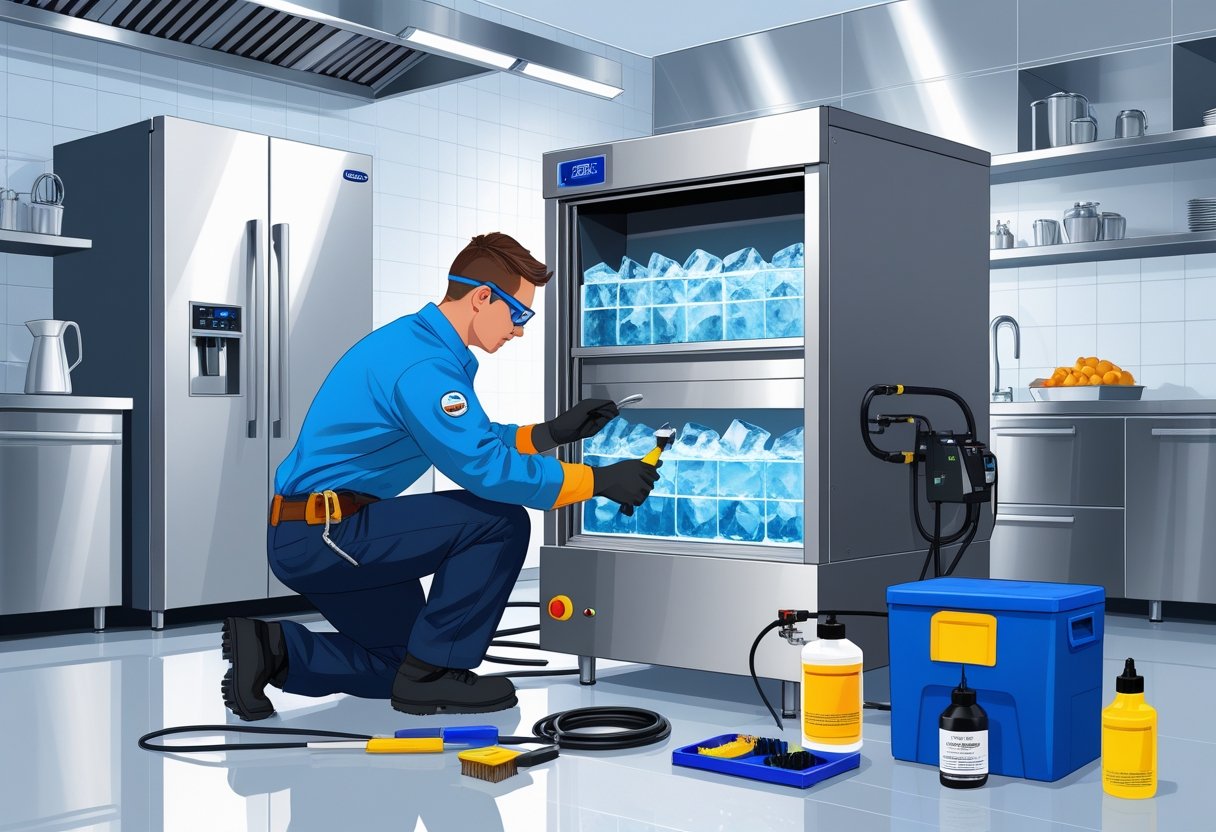
Commercial Ice Machine Maintenance Services Essential for Efficiency and Longevity
